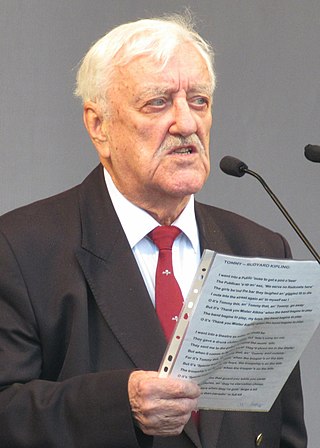
Bernard Joseph Cribbins was an English actor and singer whose career spanning nearly eight decades.
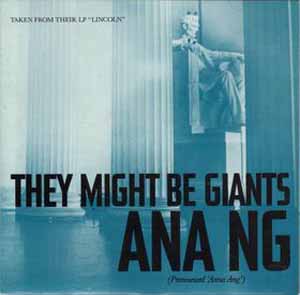
"Ana Ng" is a song by alternative rock band They Might Be Giants. It was released as the lead single from the band's 1988 album Lincoln. Although the song was their first US chart appearance, hitting number 11 on the US Modern Rock chart, the single was never officially released in the US. It was only released for promotional purposes in the US, and it saw official releases in 1989 in the United Kingdom, Australia, and later, in 1991, in Europe.

Dig Your Own Hole is the second studio album by the English electronic music duo the Chemical Brothers. It was released on 7 April 1997 in the United Kingdom by Freestyle Dust and Virgin Records and in the United States by Astralwerks. It was recorded between 1996 and 1997, and features Noel Gallagher of Oasis and Beth Orton as guest vocalists.
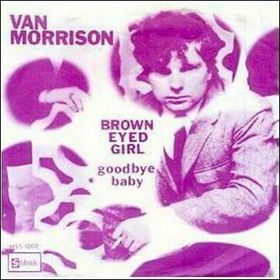
"Brown Eyed Girl" is a song by Northern Irish singer and songwriter Van Morrison. Written by Morrison and recorded in March 1967 for Bang Records owner and producer Bert Berns, it was released as a single in June of the same year on the Bang label, peaking at No. 10 on the Billboard Hot 100. The song spent a total of sixteen weeks on the chart. It featured the Sweet Inspirations singing back-up vocals and is considered to be Van Morrison's signature song.

The Foundations were a British soul band who were primarily active between 1967 and 1970. The group's background was: West Indian, White British and Sri Lankan. Their 1967 debut single "Baby Now That I've Found You" reached number one in the UK and Canada, and number eleven in the US. Their 1968 single "Build Me Up Buttercup" reached number two in the UK and number three on the US Billboard Hot 100. The group was the first multi-racial group to have a number one hit in the UK in the 1960s.
"Nellie the Elephant" is a children's song written in 1956 by Ralph Butler and Peter Hart about a fictional anthropomorphic elephant of that name.
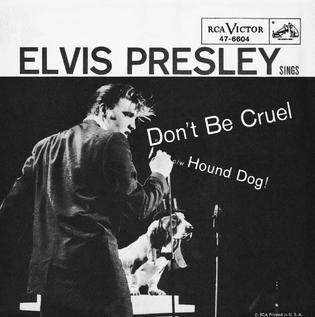
"Don't Be Cruel" is a song that was recorded by Elvis Presley and written by Otis Blackwell in 1956. It was inducted into the Grammy Hall of Fame in 2002. In 2004, it was listed #197 in Rolling Stone's list of 500 Greatest Songs of All Time.

"Hand in Glove" is the debut single by English rock band the Smiths, written by singer Morrissey and guitarist Johnny Marr. It was released in May 1983 on independent record label Rough Trade. It peaked at No. 3 on the UK Indie Chart but did not make the top 75 of the UK Singles Chart, settling outside at No. 124.

"Karma Chameleon" is a song by English band Culture Club, featured on the group's 1983 album Colour by Numbers. The single was released in the United Kingdom in September 1983 and became the second Culture Club single to reach the top of the UK Singles Chart, after "Do You Really Want to Hurt Me". The record stayed at number one for six weeks and became the UK's biggest-selling single of the year 1983, selling 1.39 million copies .To date, it is the 38th-biggest-selling single of all time in the UK, selling over 1.52 million copies.

"Living Doll" is a song written by Lionel Bart made popular by Cliff Richard and the Shadows in 1959. It was the top selling single in the UK in 1959. It has topped the UK charts twice: in its original version in 1959 and a new version recorded in 1986 in aid of Comic Relief. It is one of the few songs released by an English singer to chart on the American Billboard charts before the British Invasion occurred.

"Don't Forget to Remember" also called "Don't Forget to Remember Me" is a country ballad recorded by the Bee Gees, from the album Cucumber Castle. The song was written by Barry and Maurice Gibb. It was produced by the band with Robert Stigwood.

"Block Rockin' Beats" is a song by British big beat duo the Chemical Brothers. Released in March 1997 as the second single and opening track from their second studio album, Dig Your Own Hole (1997), it topped the UK Singles Chart and peaked at number 40 on the US Billboard Modern Rock Tracks chart. It received a Grammy Award for Best Rock Instrumental Performance.
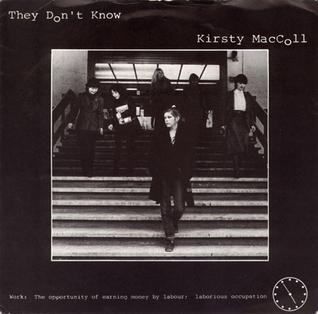
"They Don't Know" is a song composed and first recorded in 1979 by Kirsty MacColl. Though unsuccessful, the song was later recorded by Tracey Ullman in 1983. Ullman's version reached No. 2 in the UK and No. 8 in the US.

"I Can't Stand the Rain" is a song originally recorded by Ann Peebles in 1973, and written by Peebles, Don Bryant, and Bernard "Bernie" Miller. Other notable versions were later recorded by Eruption, Graham Central Station, Tina Turner and Lowell George. The original version is ranked at 197 on Rolling Stone's 500 Greatest Songs of All Time.

"Right Said Fred" is a novelty song of 1962 written by Ted Dicks and Myles Rudge.
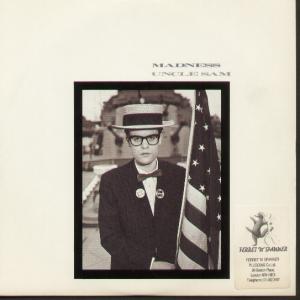
"Uncle Sam" is a song by the English ska and pop band Madness from their sixth studio album Mad Not Mad (1985). It was predominantly written by saxophonist Lee Thompson, but also jointly credited to guitarist Chris Foreman.
Myles Peter Carpenter Rudge was an English songwriter, known for writing the lyrics for novelty songs. His songs "The Hole in the Ground" and "Right Said Fred" were both British Top 10 chart hits in 1962, both recorded by Bernard Cribbins to music by Ted Dicks and produced by George Martin for Parlophone. Another of his songs, "A Windmill in Old Amsterdam", was a hit in 1965 for Ronnie Hilton, and won an Ivor Novello Award in 1966 for the Year's Outstanding Novelty Composition.

Oh! What A Carry On! is a 1971 compilation album of songs performed by actors from the Carry On... film series, and released on the budget Music For Pleasure label. Many were novelty songs with most, such as those by Jim Dale, having previously been released as singles. None were recorded specifically for this album or had any direct relationship to the Carry On films. For example, Kenneth Williams' songs as Rambling Syd Rumpo, which Gramophone magazine described as the best on the album, were taken from Round the Horne and Jim Dale's songs had been hits in the 1950s.
Edward Dicks was an English composer. He is best known for composing the music for the novelty songs "Right Said Fred" and "The Hole in the Ground". They were both Top 10 hits in the UK Singles Chart in 1962, recorded by Bernard Cribbins with lyrics by Myles Rudge, and produced by George Martin for Parlophone. Another song by Dicks and Rudge, "A Windmill in Old Amsterdam", was a million-seller hit in 1965 for Ronnie Hilton.















